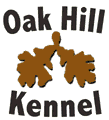 Home Home
 Library Library
 (main page) (main page)
 page 1 page 1
 page 2 page 2
 page 3 page 3
 page 4 page 4
|

|
How to get Your Money's Worth out of Professional Training
First Published in The Retriever Journal, August/September 1998
One thing is clear about having your retriever professionally trained--it is expensive. From the trainer's point of view, at present-day training rates, he is providing a lot of service for his monthly fee. From the dog owner's viewpoint, however, it may be difficult to justify putting thousands of dollars into training a dog to be used only during a brief hunting season. Both of these viewpoints have merit. If the owner decides he can afford to have his dog trained and is interested in maintaining the dog's training as a sport and recreational activity throughout the dog's life, however, then pro training is a wonderful investment, and often a great buy in services. It should also be remembered that, for a person working full-time at a profession or business, the investments in time, equipment, transportation, and help in the training field are going to cost several times the cost of professional training. Each owner must make the decision whether pro training is worth the fee--but once this decision is made, there is a great deal the owner can do to make sure it is money well spent.
 Probably the first and most important step in making training dollars spent pay off is to begin with a good dog! Get a good, well-bred puppy, ideally from a repeat breeding which has produced dogs you know you would like. Raise your puppy well. Teach it manners, basic obedience, take it places with you, and in general develop a close relationship that will serve as the basis for future training. Human contact makes the difference between an eager learner and a dog which is very difficult to teach. Exposure to different situations develops confidence, while lack of exposure usually results in a shy dog which spooks at anything and everything new.
Probably the first and most important step in making training dollars spent pay off is to begin with a good dog! Get a good, well-bred puppy, ideally from a repeat breeding which has produced dogs you know you would like. Raise your puppy well. Teach it manners, basic obedience, take it places with you, and in general develop a close relationship that will serve as the basis for future training. Human contact makes the difference between an eager learner and a dog which is very difficult to teach. Exposure to different situations develops confidence, while lack of exposure usually results in a shy dog which spooks at anything and everything new.
 |
|
Raise your puppy with plenty of human contact. |
 Failure either to select a good prospect or to bring it up well usually results in a dog which after many months of training is mediocre at best, perhaps able to find the easy falls in the decoys but not much more. If you have two puppies (which is rarely advisable) and you're in a quandary as to which one to have professionally trained, try to avoid the pitfall of reasoning that you should send the worse pup to be trained because he is more in need of the training. Send the good pup. You'll get more for your money.
Failure either to select a good prospect or to bring it up well usually results in a dog which after many months of training is mediocre at best, perhaps able to find the easy falls in the decoys but not much more. If you have two puppies (which is rarely advisable) and you're in a quandary as to which one to have professionally trained, try to avoid the pitfall of reasoning that you should send the worse pup to be trained because he is more in need of the training. Send the good pup. You'll get more for your money.
 Preliminary training that can well be done at home before sending your youngster out for professional training includes: basic manners, "No" for anything you don't want the puppy to do--don't jump on people, bite at hands, etc., housebreaking, learning its name and to come when called, heel, sit, stay, basic retrieving at the play level, and introduction to birds--most likely freshly killed pigeons. If you cover these basics and do not expose your pup to an undue level of harsh training correction, your young prospect should arrive at the trainer's in good shape, ready to train, and ahead of the rest of the class by a couple of months. Your trainer will doubtless recognize the quality of your puppy and the effort you have put into it, and compliment you on your work. Often this head start will give your trainer a more positive attitude toward you and your puppy, which could result in better and faster results in his/her training program.
Preliminary training that can well be done at home before sending your youngster out for professional training includes: basic manners, "No" for anything you don't want the puppy to do--don't jump on people, bite at hands, etc., housebreaking, learning its name and to come when called, heel, sit, stay, basic retrieving at the play level, and introduction to birds--most likely freshly killed pigeons. If you cover these basics and do not expose your pup to an undue level of harsh training correction, your young prospect should arrive at the trainer's in good shape, ready to train, and ahead of the rest of the class by a couple of months. Your trainer will doubtless recognize the quality of your puppy and the effort you have put into it, and compliment you on your work. Often this head start will give your trainer a more positive attitude toward you and your puppy, which could result in better and faster results in his/her training program.

|





